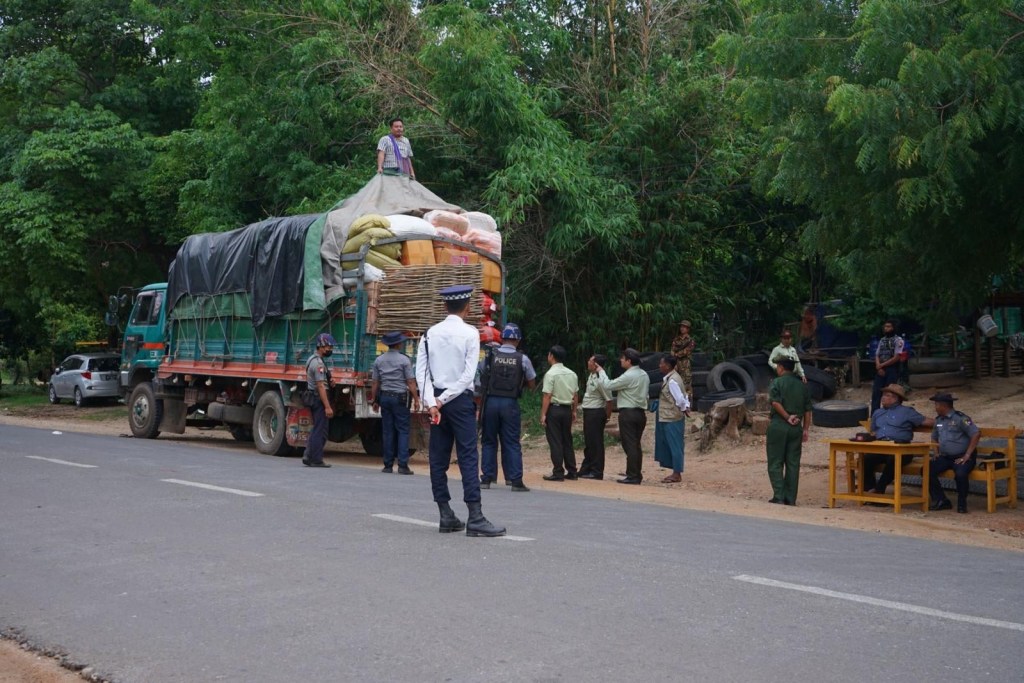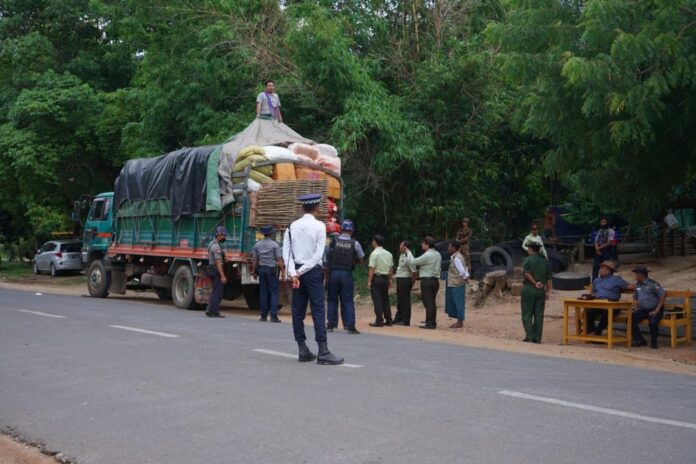Traders and drivers report that since early September, the Junta Commission has restricted the transport of goods to regions with local product surpluses.
According to state-level junta authorities, local products have been registered, and if a region is considered sufficient in food and goods, imports from outside are banned. If transporters insist, they must pay additional taxes using invoices and attached documents.
Because of these rules, basic food items and rice imported into Mon State from other regions may be blocked, said a driver who transports goods.

“If they say our area has enough, they don’t allow us to carry anything. Some people pay extra tax and get through. Even then, they don’t allow much. For textiles, you can’t really send them to Yangon—everything is carefully checked. And if it’s domestic products, you can’t bring them into places like Myawaddy or Thailand at all,” the driver explained.
Drivers from Kyaikmayaw said that at junta checkpoints between Mon State and other regions, only one sack of rice per truck is now allowed, forcing many to transport goods secretly.
A humanitarian worker from the Mon Unity Party said the junta may be restricting goods because they fear supplies meant for civilians and displaced people in conflict areas will instead reach resistance forces.
“In places south of Malwe Taung where fighting broke out, the military worries that food won’t reach displaced civilians or villagers but will end up with resistance groups. That’s why they impose these restrictions, plus time-limited travel. In conflict zones, it’s the same routine—blocking roads here and there,” the worker said.
Humanitarian groups warn that these restrictions will make it even harder for displaced civilians to receive aid.
Local sources also said that goods entering Myanmar through Karen State’s border with Thailand will now require official recommendation letters from the state military administration to pass.

